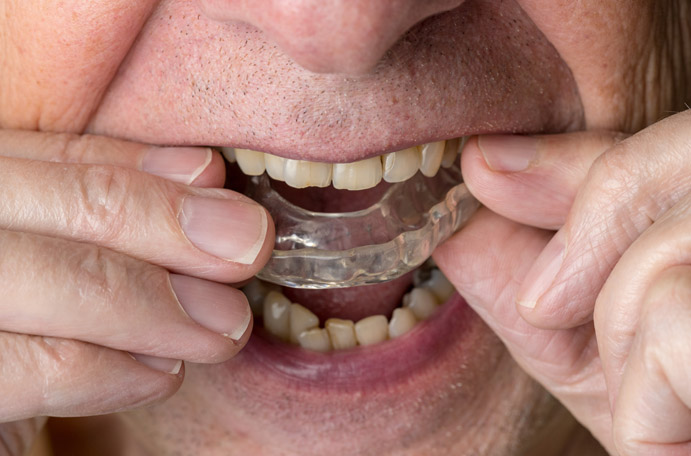Bruxism is the grinding of the teeth together. It wears them down and causes hairline fractures and chips teeth, leading to dental decay. It can risk the viability of dental implants and can also result in headache and jaw pain. Your dentist can observe these effects by inspecting your teeth.
If you know (or suspect) you have bruxism (teeth grinding) – even if you have consulted with your favourite Epping Dentist about it previously – it is well worth doing so again.
The reason is that a whole lot of new research has been conducted into bruxism and taken our understanding of it to a new level.
We now realise that there are different mechanisms at work in daytime and nighttime bruxism, whereas before, they were lumped together. So for a start, it is worthwhile exploring whether your bruxism occurs at day or in the night when you are sleeping.
Nighttime bruxism is now thought to be caused by rhythmic chewing (masticatory) muscle activity during sleep and is not thought to be a disorder if the person is otherwise healthy. However, your Epping Dentist will have to investigate your medical history thoroughly to discover if you have any health issues that could be implicated. These include your stress levels; your use of smoking, caffeine, and alcohol; whether you snore or have obstructive sleep apnoea, and what drugs you take.
Daytime bruxism is now thought to be caused by repeated or sustained tooth contact or forward thrusting of the lower jaw. It is not thought to be a disorder in a person who is otherwise healthy either, although it is seen as being related to stress.
Once we have a more accurate idea of when your bruxism occurs and what is causing it, he or she can talk with you about what is advisable. The best way to protect your teeth from damage and manage the bruxism will depend on what is causing/contributing to it. It may well be best for your overall health to investigate any contributory factors further. Some of them are very damaging – on top of bruxism’s unhealthy oral effects – but your Epping Dentist will be able to advise you about that.
To find out more, please click the link for an appointment for a consultation:

